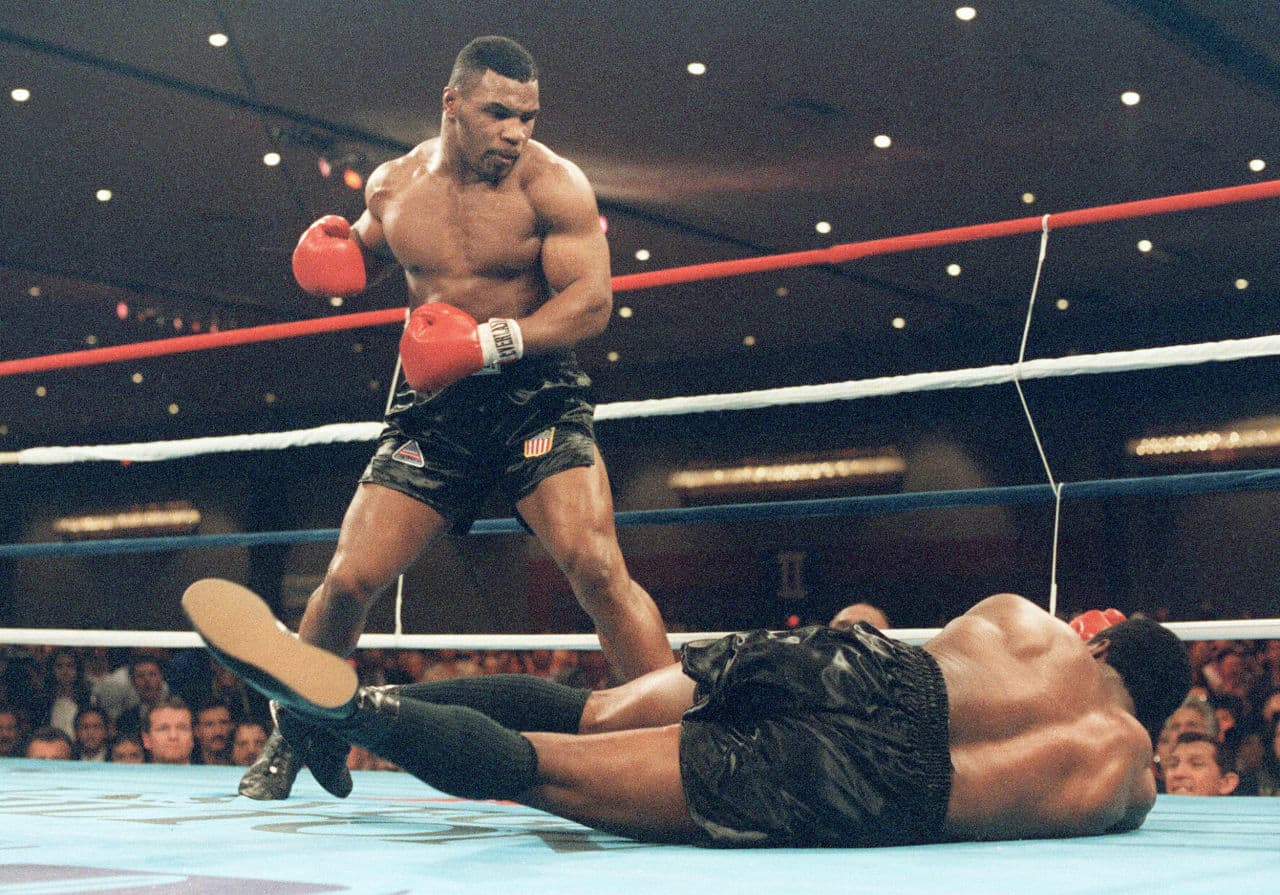Advertisement
'Champs' Looks At Boxing Beyond The Ring
ResumeI recently watched a new documentary titled “Champs.” Among those featured in it is former Heavyweight Champion Mike Tyson, who speaks about his Brooklyn origins:
"The worst characteristics you could think of black life is where I stemmed from," he said. "Lot of drugs, tons of violence. My parents sold women, sex in the street and stuff, and that’s what they did. We weren’t safe in the house; we were always vulnerable. A lot of men slept with my sister, beat me."
Director Bert Marcus chronicles Tyson’s career as well as those of boxing champions Bernard Hopkins and Evander Holyfield. Marcus joined Bill Littlefield to discuss the project.
BL: Numbers of the fighters, trainers, and writers featured in “Champs” establish early and often that, historically, boxing has offered men with almost nothing an opportunity to improve their circumstances. Did that truism help you choose which boxers to feature in the film?
It’s a human story. It’s about where we are in America. I think it’s a microcosm for a much bigger subject matter.
Bert Marcus, director
BM: I think absolutely. The irony that's inherent in the sport of boxing was initially what drew me. But these men in particular, escaping such a savage life through a savage profession was the ultimate paradox and why I found them in particular to be a perfect vehicle to take us through.
BL: I think the most compelling figure in the film is Bernard Hopkins. In one segment film, he talks about his reputation when he was sentenced to 18 years in prison at the age of only 17:
"I build a reputation on the blocks like I was building on the streets. I was known…don’t fight me, you gotta stab me. I was going, like, I’ll be dead before I’m 18 or I’ll be in prison all my life or I’ll be nothing."
Bernard Hopkins re-discovered boxing in prison and he was released in 1988. He became the IBF Middleweight champion in 1993. How did he manage to avoid the fate that he'd anticipated?
BM: I think Bernard is just one of those guys with the real will to succeed in life. And Bernard, in particular, really takes you through that journey of what it takes to be a champion outside of the ring as well as inside and how to actually have a successful, productive life when his boxing career comes to an end. He's still boxing, but he plays such an integral role in shaping young, amateur boxers and helping people be surrounded by the proper people — making sure every single person that enters the sport has the proper knowledge, education and team and support to be successful after their career.
BL: Hopkins said at one point he learned to think of “prison as a business.” Talk about what he meant by that.
BM: I think what he means is that in America, especially, the prison system has just gotten out of control. The prison population has quadrupled since 1980. I mean, in the film we even talk about the fact that 5 percent of the world's population is made up of Americans but we make 25 percent of the world's prison population. And that's something I think that a lot of boxers who have been in and out of the system — especially someone like Bernard -- can attest to and hopefully bring a lot of these issues to the forefront.

BL: Mike Tyson’s excesses, of course, are well-known, as is his criminal history. But there's a moment in the film that may surprise even people who think they know all about Mike Tyson. It comes, apparently, when he’s responding to the assertion that being the Heavyweight Champion can do strange things to your head:
"You think, anybody on the planet with six billion people…six billion, right? Anybody on this planet, you could beat ‘em in a fair fight. So you tell me how that will feed your ego."
As you were making the film, did you begin to find Mike Tyson a sympathetic figure?
BM: Yeah, I mean I've known Mike for many years and I've always been fascinated with Mike — a lot of different sides to him. I was really surprised by his humility, to be honest. He's been to the top of the top and the bottom of the bottom and he can really open himself up.
BL: Have Tyson, Holyfield or Hopkins let you know what their thoughts are on “Champs?”
BM: I think they feel like we did get it right. They feel like this is an important film that goes way beyond boxing. You know, it's a human story. It's about where we are in America. I think it's a microcosm for a much bigger subject matter, and that's why it was a great vehicle for us.
This segment aired on March 14, 2015.
